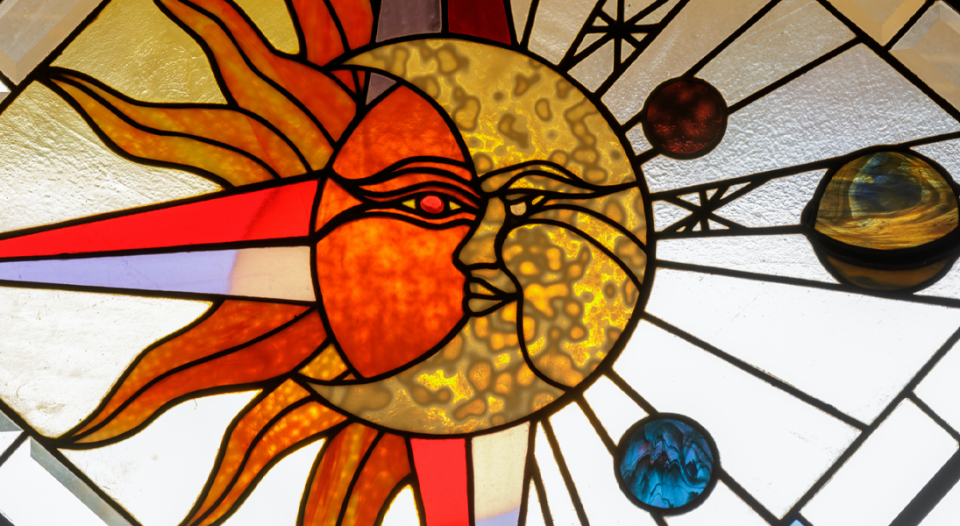Author’s note: Lutherans and other hymn lovers may be surprised to learn how many of their favorite hymns come from medieval texts. Can anything good come out of the “Dark Ages”? Martin Luther thought so; he adopted and adapted multiple hymn texts from the Middle Ages, both Latin and German. This is the third in a four–part series exploring examples of pre-Reformation hymn texts in their historical contexts and sequence.
Commemorated every Oct. 4, Francis of Assisi (1182-1226) is legendary for his love of animals and all creation. His hymn text “The Canticle of Brother Sun” may sound too “green” to be medieval, but Francis really did write these words, adapted into the hymns “All Creatures of Our God and King” (Lutheran Book of Worship, 527) and “All Creatures, Worship God Most High!” (Evangelical Lutheran Worship, 835).
For centuries the only monks in Western Europe were Benedictine, and Christians there sang only in Latin. Francis broke this mold, starting a new order and composing in an Italian dialect. Over against the wealth and power of his family, his town and his historical era—with its extravagant Gothic cathedrals and costly crusading armies—Francis chose radical poverty. He lived outdoors, begging on the street and experiencing nature and all sorts of animals.
The sun and moon were his natural companions, along with the traditional four elements mentioned in his canticle: wind, water, fire and earth. Francis sang the harmonious goodness of creation, not a discordant evil of matter.
O sisters, brothers, take your part, and worship God with humble heart.
Although titled “The Canticle of Brother Sun,” his song (presented here in the Paulist Press translation, with my tweaks noted) starts not with the sun but with high praise for God: “[Highest, omnipotent,] good Lord, Yours are the praises, the glory, the honor, and [every] blessing. To You alone, Most High, do they belong, and no human is worthy to [name you].” Even if no human being is worthy to pronounce the divine name, God can still be praised with and through other creatures.
Thus follow the stanzas, with their opening phrase, “Praised be You, my Lord,” repeated many times. “Praised be You, my Lord, through Sister Moon and the stars, in heaven you formed them clear and precious and beautiful.”
Francis praises God through these creatures; he does not address them as if they were living beings. God the Creator is praised by means of all creation, from the heavenly bodies down through the four basic elements, even to the earthly predicament of human weakness and all the way down to “our Sister Bodily Death,” from a section he added near the end of his life.
A Franciscan humility
William Henry Draper, who translated Francis’ text into English as “All Creatures of Our God and King,” was probably influenced by the scriptural witness, including Psalm 148: “Praise [God], sun and moon.” His version addresses the text to the creatures themselves, calling on all things to join in praise of the Creator, with multiple “alleluias” echoing the Psalms.
O flowing waters, pure and clear,
make music for your Lord to hear.
Oh, praise him! Alleluia!
O fire so masterful and bright,
providing us with warmth and light.
While Draper had dropped the familial language, “All Creatures, Worship God Most High” restores the naming of brothers, sisters and mother.
Sing, brother fire, so mirthful, strong;
drive far the shadows, join the throng.
Alleluia! Alleluia!
Dear mother earth, so rich in care,
praise God in colors bright and rare.
Clearly Francis was devoted to the “poor Christ,” noting Jesus’ birth in a stable, yet the canticle does not explicitly name him, not even in the full stanza about death. “Praised be You, my Lord, through our Sister Bodily Death, from whom [no one living] can escape. Woe to those who die in mortal sin. Blessed are they whom [she finds] in Your most holy will, for the second death [can] do them no harm.”
In the end, the canticle calls on all to praise and bless the Lord, giving the last word to a very Franciscan humility:
O sisters, brothers, take your part, and worship God with humble heart.
The original Italian for the refrain “praised be You” is Laudato si’, which provided the title of the current pope’s 2015 encyclical on “care for our common home.” Bringing a medieval hymn text fully into our current concern for the natural environment, this pope even chose Francis as his papal name—a name forever known for this celebration of creation and its Creator.
Next: The November/December installment in this series will examine “Savior of the Nations, Come” (ELW, 263), Martin Luther’s translation of St. Ambrose.





